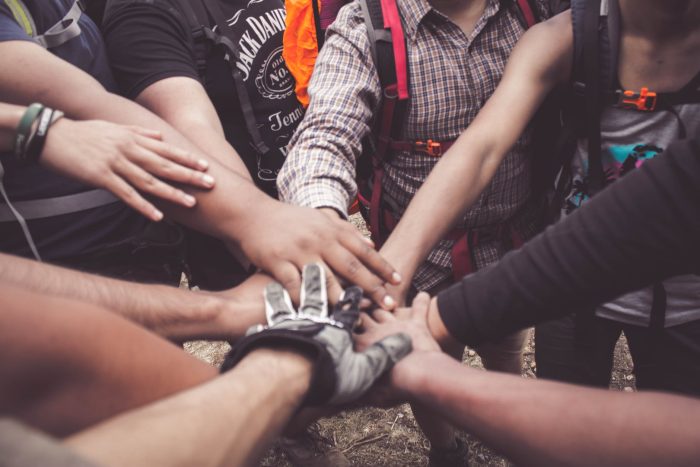I work for a youth wellness centre as an outreach and peer support worker. My role is basically to be a role model adult, kind of like an aunty who is around to listen and play when parents and teachers are not available.
Our team’s focus is mental health of the growing mind. You can imagine the countless issues teens are struggling with now and have been forever. Just remember your own years of insecurities, anxieties, social challenges, power struggles and so on. Mental health starts in utero and things only get harder for most of us from there.
We also work with parents who are navigating the daunting task of trying to raise these teenagers. Oh, my heart goes out to you all…
Lately the most frequent issues we face: (no surprises here)
Social isolation sprinkled with depression, social anxiety, screen addiction and the simple refusal of doing anything independently or the opposite; cooperating with anyone else.
I would call these: socialization disabilities.
Nowadays it’s easy to blame everything on Covid. I agree, social isolation was hard on all of us and for these young people it included 10-15% of their lifetime. However, in my option the issue started much before the pandemic. From the beginning of the existence of video games and social media we all suspected there will be consequences both good and bad. Besides the obviously beneficial drop in teen pregnancy we have now arrived to a full blown social isolation epidemic and it’s only just starting to show it’s real colours. We all have seen this coming. In fact, we are part of the problem as well.
Whenever faced with an issue, I’m hoping to find and offer more than just the doom of our reality. I do believe we will learn from these mistakes too. Humans are extremely resilient. I do have hope for our young generation but of course, they can’t do this without our help. So parents, aunties, grandmas and neighbours, let’s go back to the roots of the issue, which is the loss of communities; The Village.
One’s village is their physical surroundings. The neighbour’s house, the homes of their friends, the corner store, the creek behind their yard. It is very hard to expect a young mind to feel safe out in the wild wild world if they don’t feel protected and balanced around their own homes. Assuming they do feel safe and balanced within their home, let’s start re-building social connection right next door.
Here are a few solutions to the problem of deep rooted social isolation:
Ideas to build community with children
- When you move into a new home make a batch of cookies and make the journey over to your neighbours with them. You are the newcomer, introduce yourself. Take your kids over with you to witness you smiling and chatting for a minute. They learn from our examples. This takes very little effort and yes, it might feel vulnerable for a second, but the trust and connection it creates is priceless. Take notes of peoples names and use them frequently.
- For your kids birthdays invite the neighbourhood kids too. Yes, even if they are slightly different age than yours. The social environment for kids starts around their own home.
- Help them set up lemonade sales and cooperate. Perhaps they could sell lemonade to collect money and buy a new outdoor toy they can share for years.
- Teach and support neighbourhood kids walking together to school.
- Organize family friendly potluck block parties. Who shows up is not your responsibility, just make the invitation. People who come will build unforgettable memories. The more neighbours know about each other the more safe everyone feels in a community.
- Share your garden plants.
- Always look up and say hello.
- Create a private social media group for your neighbourhood, to inform each other about lost cats, bears in the neighbourhood, the lemonade sales, etc.
- Shovel your next door neighbor’s driveway in the winter as a gift, especially if they are older than you.
- Ask for help.
- Offer help.
- Talk to each other. Once you do, you will find a million more ways to cooperate…
Let’s model cooperation. They will follow 🙂 By making some effort to live this way not only teaches kindness, but also serves a fundamental human need we all share: the safety of belonging.












Read 0 comments and reply